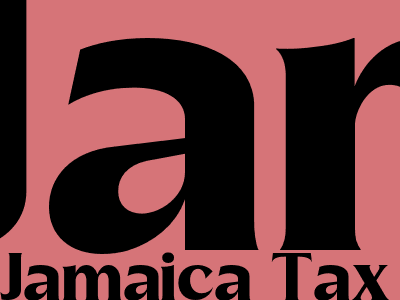
Upcoming News Article: Jamaica Tax
A New Era of Taxation in Jamaica
In a groundbreaking move that is set to reshape the Jamaican economy, the government of Jamaica has announced a comprehensive overhaul of its taxation system. This article will provide an in-depth analysis of the proposed changes, their potential impact on businesses and individuals, and the broader implications for Jamaica's economic development.
Key Changes to Jamaica's Taxation System
Introduction of a Value-Added Tax (VAT)
One of the most significant changes is the introduction of a Value-Added Tax (VAT). This is a consumption tax that will be levied on the sale of goods and services throughout the supply chain. The standard VAT rate is expected to be 15%, which is comparable to rates in other Caribbean countries.
The implementation of VAT is intended to simplify the tax system, reduce the number of existing taxes, and increase revenue collection. However, it is also likely to lead to higher prices for consumers.
Reform of Personal Income Tax
The government is also proposing changes to the personal income tax system. The aim is to make the system more progressive and reduce the tax burden on low- and middle-income earners.
Under the proposed changes, the income tax threshold will be raised, and the number of tax brackets will be reduced from five to three. The top marginal tax rate will be lowered from 30% to 25%.
New Taxes on Alcohol and Tobacco
The government is also introducing new taxes on alcohol and tobacco products. This is part of a broader effort to promote public health and reduce consumption of these harmful substances.
The new taxes will be levied on manufacturers, importers, and distributors of alcohol and tobacco products. The rates of taxation will vary depending on the type of product.
Impact of the Tax Changes
The proposed tax changes are likely to have a significant impact on businesses and individuals in Jamaica. Businesses will need to prepare for the implementation of VAT and may need to adjust their pricing strategies.
Individuals will also be affected by the changes, particularly those on low and middle incomes. The higher VAT rate may lead to higher prices for essential goods and services, and the changes to personal income tax may not fully offset this impact.
Overall, the impact of the tax changes will depend on a number of factors, including the specific details of the legislation, the response of businesses and consumers, and the overall state of the Jamaican economy.
Conclusion
The Jamaican government's proposed tax changes are a bold and ambitious attempt to modernize the tax system and boost revenue collection. While the changes are likely to have a significant impact on businesses and individuals, they could also lead to a more efficient and equitable tax system in the long run.